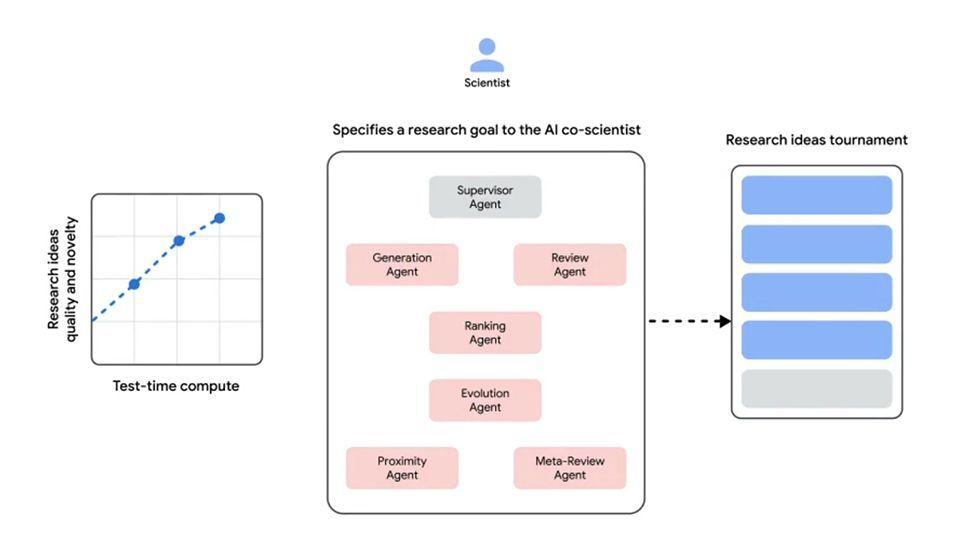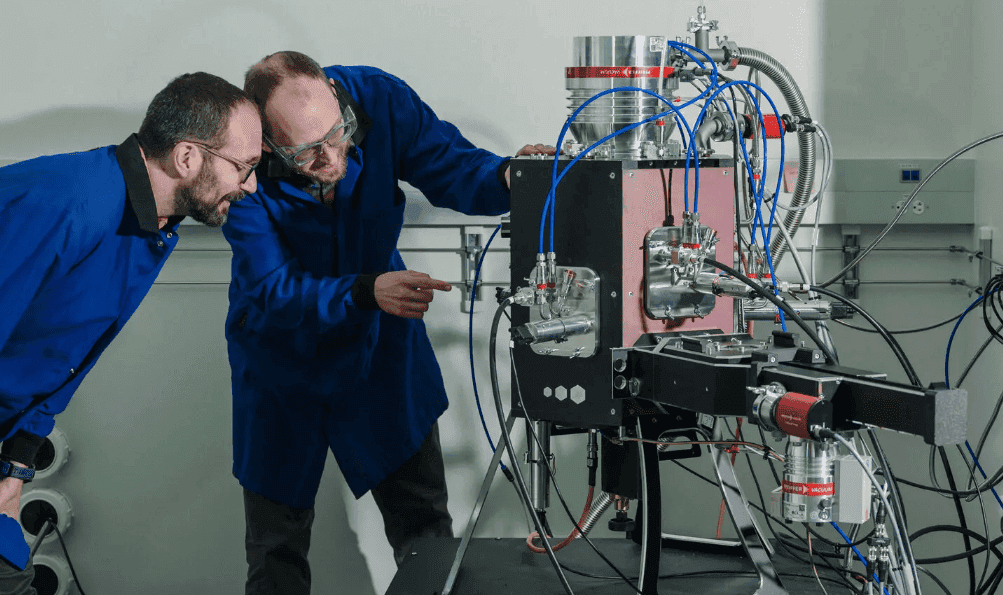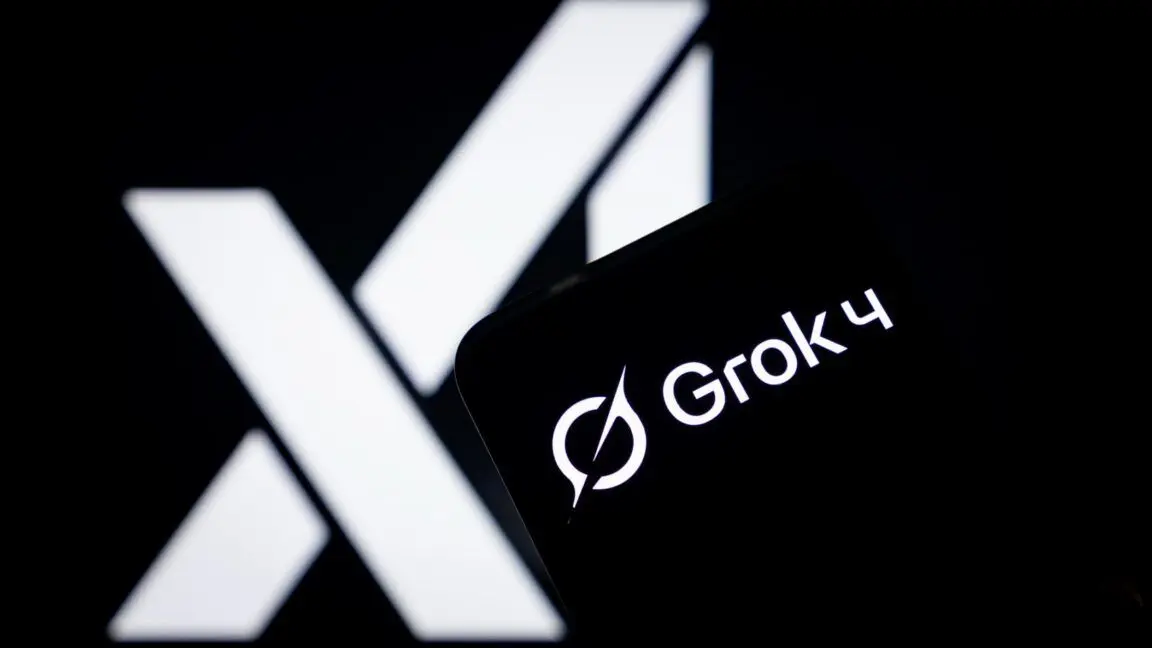FutureHouse Unveils AI Platform to Accelerate Scientific Discovery in Biology
3 Sources
3 Sources
[1]
FutureHouse previews an AI tool for 'data-driven' biology discovery | TechCrunch
FutureHouse, an Eric Schmidt-backed nonprofit that aims to build an "AI scientist" within the next decade, has released a new tool that it claims can help support "data-driven discovery" in biology. The new tool comes just a week after FutureHouse launched its API and platform. The tool, called Finch, takes in biology data (primarily in the form of research papers) and a prompt (e.g. "What can you tell me about molecular drivers of cancer mataseses?") and runs code before generating figures and inspecting the results. In a series of posts on X, FutureHouse co-founder and CEO Sam Rodriques compared it to a "first-year grad student." "[B]eing able to [do all] this in minutes is a superpower," Rodriques wrote. "[Finch] actually ends up finding some really cool stuff [...] For our own projects internally, we have found it to be pretty awesome." FutureHouse's proposition, like that of many, many startups and tech giants, is that Finch and other AI tools will someday automate steps in the scientific process. In an essay earlier this year, OpenAI CEO Sam Altman said "superintelligent" AI tools could "massively accelerate scientific discovery and innovation." Similarly, the CEO of Anthropic, which just this week launched an "AI for science" program, has boldly predicted that AI could help formulate cures for most cancers. Yet evidence is lacking. Many researchers don't consider AI today to be especially useful in guiding the scientific process. Tellingly, FutureHouse has yet to achieve a scientific breakthrough or make a novel discovery with its AI tools. Biology, particularly on the drug discovery side, is an attractive target for AI companies. Precedence Research estimates the market was worth $65.88 billion in 2024 and could reach $160.31 billion by 2034. While there have been some successes, AI hasn't provided an immediate magical solution in the lab. Several firms employing AI for drug discovery, including Exscientia and BenevolentAI, have suffered high-profile clinical trial failures in recent years. Meanwhile, the accuracy of leading AI systems for drug discovery, like Google DeepMind's AlphaFold 3, tends to vary widely. Finch similarly makes "silly mistakes," Rodriques said -- which is why FutureHouse is recruiting bioinformaticians and computational biologists to help evaluate its accuracy and reliability and train it while it's in closed beta.
[2]
FutureHouse releases AI tools it claims can accelerate science | TechCrunch
FutureHouse, an Eric Schmidt-backed nonprofit that aims to build an "AI scientist" within the next decade, has launched its first major product: a platform and API with AI-powered tools designed to support scientific work. Many, many startups are racing to develop AI research tools for the scientific domain, some with massive amounts of VC funding behind them. Tech giants seem bullish, too, on AI for science. Earlier this year, Google unveiled the "AI co-scientist," an AI the company said could aid scientists in creating hypotheses and experimental research plans. The CEOs of AI companies OpenAI and Anthropic have asserted that AI tools could massively accelerate scientific discovery, particularly in medicine. But many researchers don't consider AI today to be especially useful in guiding the scientific process, in large part due to its unreliability. FutureHouse on Thursday released four AI tools: Crow, Falcon, Owl, and Phoenix. Crow can search scientific literature and answer questions about it; Falcon can conduct deeper literature searches, including of scientific databases; Owl looks for previous work in a given subject area; and Phoenix uses tools to help plan chemistry experiments. "Unlike other [AIs], FutureHouse's have access to a vast corpus of high-quality open-access papers and specialized scientific tools," writes FutureHouse in a blog post. "They [also] have transparent reasoning and use a multi-stage process to consider each source in more depth [...] By chaining these [AI]s together, at scale, scientists can greatly accelerate the pace of scientific discovery." But tellingly, FutureHouse has yet to achieve a scientific breakthrough or make a novel discovery with its AI tools. Part of the challenge in developing an "AI scientist" is anticipating an untold number of confounding factors. AI might come in handy in areas where broad exploration is needed, like narrowing down a vast list of possibilities. But it's less clear whether AI is capable of the kind of out-of-the-box problem-solving that leads to bonafide breakthroughs. Results from AI systems designed for science so far have been mostly underwhelming. In 2023, Google said around 40 new materials had been synthesized with the help of one of its AIs, called GNoME. Yet an outside analysis found not a single one of the materials was, in fact, net new. AI's technical shortcomings and risks, such as its tendency to hallucinate, also make scientists wary of endorsing it for serious work. Even well-designed studies could end up being tainted by misbehaving AI, which struggles with executing high-precision work. Indeed, FutureHouse acknowledges that its AI tools -- Phoenix in particular -- may make mistakes. "We are releasing [this] now in the spirit of rapid iteration," the company writes in its blog post. "Please provide feedback as you use it."
[3]
FutureHouse Platform brings super-intelligent AI research tools to scientists via web and API - SiliconANGLE
FutureHouse Platform brings super-intelligent AI research tools to scientists via web and API FutureHouse, a nonprofit backed by former Google Chief Executive Officer Eric Schmidt that's building artificial intelligence agents for scientific research, today announced the launch of FutureHouse Platform, a web-based and application programming interface-accessible suite of super-intelligent AI agents designed to accelerate scientific discovery. The FutureHouse Platform has been designed to handle the overwhelming volume of scientific literature and data that scientists deal with when doing scientific research. The platform introduces four specialized agents, Crow, Falcon, Owl and Phoenix, to assist with tasks like literature synthesis, hypothesis generation and experiment planning. The agents have been benchmarked to outperform human researchers in key tasks such as literature retrieval and synthesis. According to the company, the platform demonstrated higher precision and accuracy than PhD-level researchers in head-to-head evaluations of scientific search and summarization. Of the agents, Crow serves as a general-purpose agent that delivers concise, scholarly answers and is optimized for API integration. The second agent, Falcon, offers in-depth literature reviews and has access to large-scale databases such as OpenTargets, which allows it to analyze more scientific content than any other comparable agent. The third agent, Owl, answers whether a specific experiment or study has been conducted before, helping researchers avoid redundant work. The fourth agent, Phoenix, assists with experimental chemistry planning through specialized tools. AI agents are hardly new in 2025, but where the agents get interesting is that, unlike general-purpose AI, they've all been built from the ground up for science. The agents can assess source reliability, track citations and surface methodological concerns by working with full-text papers rather than relying solely on abstracts or summaries. The new platform also emphasizes transparency and reasoning, using a multi-step process that allows users to see exactly how conclusions are drawn. Doing so helps researchers validate findings and improves trust in AI-assisted workflows. FutureHouse is making the platform accessible via both user interface and API, allowing labs and institutions to build custom research pipelines. Scientists can automate literature reviews, monitor new publications, or link the agents to experimental screening data for real-time context. One of the first users of the platform has been the Michael J. Fox Foundation for Parkinson's Research, which has been impressed with the results. The platform "allows us to gather evidence from PD patient samples and preclinical in vitro and in vivo models in a highly structured and efficient manner," said Gaia Skibinski PhD, director of discovery and translational research at The Michael J. Fox Foundation. "This work supports our Targets to Therapies initiative, launched last year, where a similar analysis was performed manually by a panel of scientific experts. It has been exciting to explore how advanced LLMs can complement and accelerate traditional scientific approaches."
Share
Share
Copy Link
FutureHouse, an Eric Schmidt-backed nonprofit, launches a suite of AI tools aimed at revolutionizing scientific research, particularly in biology. The platform includes specialized agents for literature review, hypothesis generation, and experiment planning.

FutureHouse Introduces AI-Powered Research Platform
FutureHouse, a nonprofit organization backed by former Google CEO Eric Schmidt, has launched an ambitious AI platform aimed at accelerating scientific discovery. The organization, which aspires to build an "AI scientist" within the next decade, has released a suite of AI tools designed to support researchers in various aspects of scientific work, with a particular focus on biology
1
2
3
.The FutureHouse Platform and Its AI Agents
The newly released FutureHouse Platform introduces four specialized AI agents:
- Crow: A general-purpose agent optimized for API integration, providing concise, scholarly answers.
- Falcon: Specializes in in-depth literature reviews, with access to large-scale databases like OpenTargets.
- Owl: Helps researchers avoid redundant work by determining if specific experiments or studies have been conducted before.
- Phoenix: Assists with experimental chemistry planning through specialized tools
3
.
These AI agents are built specifically for scientific research, capable of assessing source reliability, tracking citations, and surfacing methodological concerns. The platform emphasizes transparency and reasoning, allowing users to see how conclusions are drawn
3
.Finch: A New Tool for Biology Discovery
In addition to the four main agents, FutureHouse has previewed a new tool called Finch, specifically designed for "data-driven discovery" in biology. Finch processes biology data, primarily from research papers, and responds to prompts by running code, generating figures, and inspecting results. FutureHouse co-founder and CEO Sam Rodriques compared its capabilities to those of a "first-year grad student"
1
.Related Stories
Potential Impact and Challenges
FutureHouse claims that its AI tools can significantly accelerate the pace of scientific discovery. The platform has already garnered attention from notable institutions, with the Michael J. Fox Foundation for Parkinson's Research reporting positive results in using the tools to support their research initiatives
3
.However, the effectiveness of AI in guiding the scientific process remains a subject of debate. While tech leaders like OpenAI CEO Sam Altman and Anthropic's CEO have made bold predictions about AI's potential in scientific breakthroughs, many researchers remain skeptical about its current usefulness
1
2
.Limitations and Ongoing Development
FutureHouse acknowledges that its AI tools, including Finch and Phoenix, may make mistakes. The company is actively recruiting bioinformaticians and computational biologists to evaluate the accuracy and reliability of its tools during the closed beta phase
1
.The challenge of developing an "AI scientist" lies in anticipating numerous confounding factors and achieving the kind of out-of-the-box problem-solving that leads to genuine breakthroughs. Previous attempts at AI-driven scientific discovery have shown mixed results, with some high-profile failures in drug discovery and questions about the novelty of AI-generated discoveries
1
2
.As the field of AI in scientific research continues to evolve, FutureHouse's platform represents a significant step towards integrating advanced AI capabilities into the scientific process. However, the true impact of these tools on accelerating scientific discovery remains to be seen.
References
Summarized by
Navi
Related Stories
Google's AI Co-Scientist: A Controversial Step Towards AI-Assisted Scientific Research
06 Mar 2025•Science and Research

Google Unveils AI Co-Scientist: A Revolutionary Tool for Scientific Discovery
20 Feb 2025•Science and Research

Lila Sciences Raises $200M to Revolutionize Scientific Discovery with AI
11 Mar 2025•Science and Research

Recent Highlights
1
ByteDance Faces Hollywood Backlash After Seedance 2.0 Creates Unauthorized Celebrity Deepfakes
Technology

2
Microsoft AI chief predicts artificial intelligence will automate most white-collar jobs in 18 months
Business and Economy

3
Google reports state-sponsored hackers exploit Gemini AI across all stages of cyberattacks
Technology





